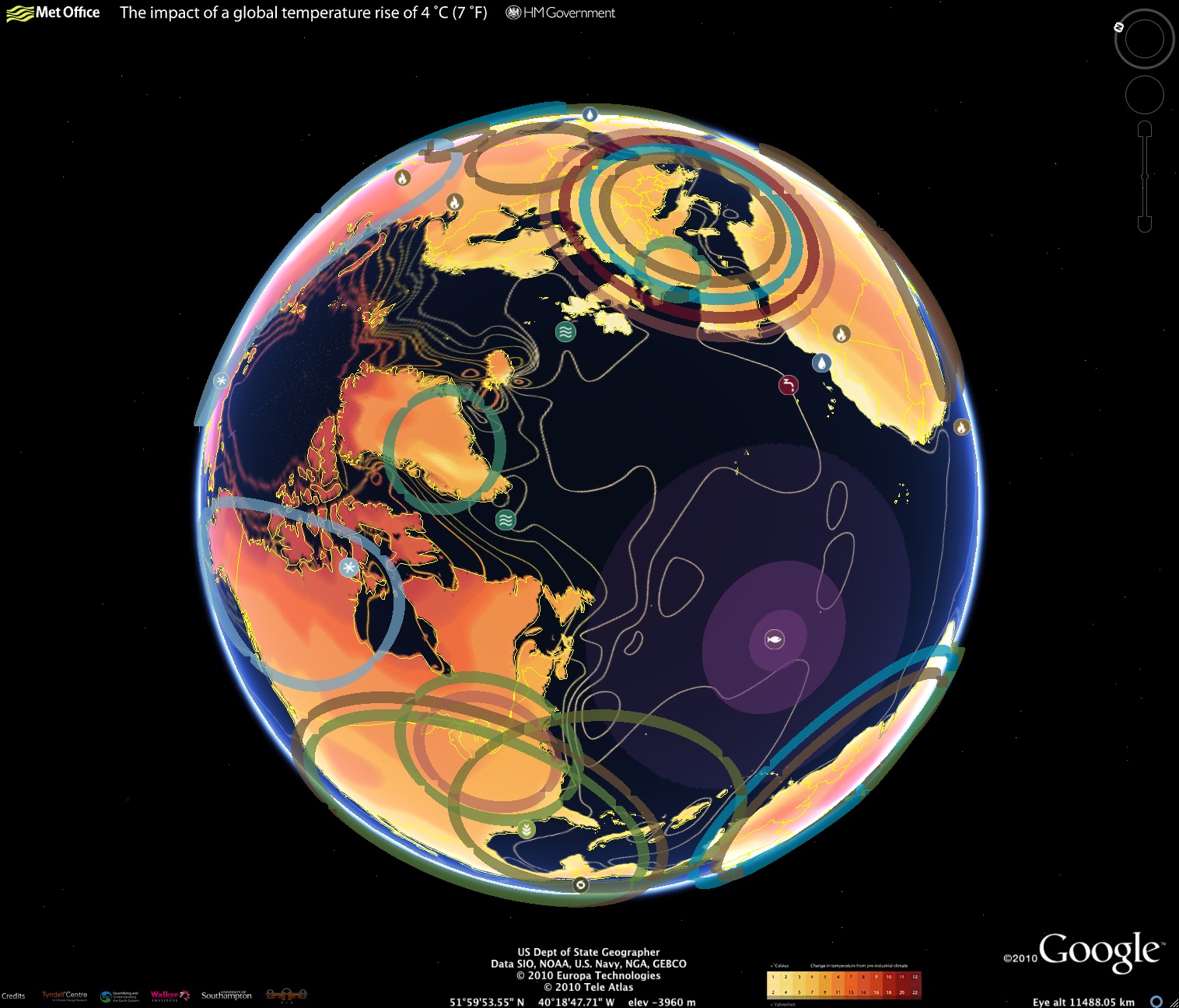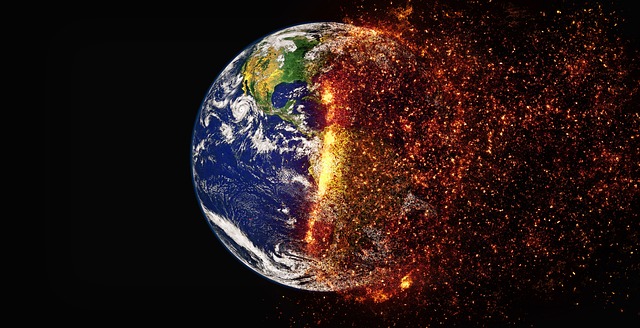
Global climate change is a serious topic that affects the lives of all people on the planet. Many scientists have investigated the effects of this phenomenon. These impacts can range from altering weather patterns to reducing biological diversity. This trend must be addressed by governments.

In order to provide a broad picture of the current global research on climate change, a bibliometric study was conducted. It aims to compare the scientific output of different countries and regions to determine the most important aspects of the issue. This was done by evaluating a 40,062 article database on climate change. These articles were taken directly from the World of Science data base. This analysis of publications on the basis of technological, ecological, or socioeconomic factors allowed for an extensive assessment of current art.
Scientists have discovered that the ocean's heat content has increased dramatically over the last few decades. Additionally, the Arctic is heating up more than twice as fast as the rest of the world. The result is that sea levels are rising quickly. The most affected by the adverse effects are cities and coastal ecosystems that are the biggest in the world.
Scientists have looked at many different factors that influence Earth's energy imbalance, but they also have developed sophisticated models to predict future climate. These models show that the developing world faces a huge burden from climate impacts. However, these models are not able to reproduce what has actually happened. This is why reliable estimates of the impacts of climate change are essential to research.
Although there are many scientific evidences to support global warming it is difficult to estimate the effect. All mitigation strategies must be based upon a reliable estimate of the impact of climate change. Global Climate Risk Index is a data source that provides information on the severity and frequency of weather events for various years.

Another indicator of global temperature change is the increasing rate at which greenhouse gas levels have been rising. Research has shown that the rate at which greenhouse gas concentrations have increased over the last century is unprecedented. This is because human activities have increased the amount of CO2 in the atmosphere. These gases capture more of the Sun’s heat. Research has shown that the rate of warming in the past century was 10 times faster then the rate of warming in the last decade.
Other indicators that the earth may be changing fast include melting ice and increased heat in the sea. These changes could have devastating consequences for human life, including our food supply and water supply. Climate change is already causing extreme weather events to increase. Despite numerous warning signs of a changing climate and the need to act, governments are yet to do anything to address its effects.
FAQ
What role can the energy sector play in climate changes?
The role of the energy sector in climate change is immense. Global warming is caused by the release of carbon dioxide into the atmosphere. This traps heat and causes an increase in Earth's average temperature.
To address this issue, energy sources must transition away from carbon-emitting fuels like coal and natural gaz and instead turn to renewable energy sources like solar, geothermal, wind, and other renewable sources. This change can be made by government policy, incentives, and investments in innovative technology, such as hydrogen fuel cells. By investing in infrastructure that supports the use of these renewable sources, businesses and households can drive down emissions while simultaneously reducing their electricity bills.
Other ways include switching from polluting transportation options such as petrol-fueled cars to moving towards electric or public transport. Governments have great power to lead societies' transitions away from oil-based infrastructures by supporting research into battery technologies and incentivizing consumers to invest in cleaner modes of transportation.
In order to reduce their carbon footprint, companies need to adopt green business methods. These include installing better insulation systems in offices and creating energy efficiency plans for manufacturing facilities. This can help drastically reduce operational costs while simultaneously improving environmental performance metrics.
These initiatives should be championed at all levels, not just at company level but also at government. Raising taxes on pollution products encourages individuals and businesses to stop using harmful practices. While this may be a financial outlay for polluters, providing vouchers for or subsidy for low-carbon products can create a continuing market to support sustainability efforts. The private and public sector must work together to combat climate change. Providing vouchers or subsidies for low-carbon products and switching to cleaner energy sources will create a market that supports sustainability efforts.
What are the causes and consequences of climate change?
Climate change is a global phenomenon. It has been caused by an increase in greenhouse gases that are emitted from humans. These emissions lead to a greater amount of sun's energy being trapped in Earth’s atmosphere, which results in rising temperatures.
Climate change can also be caused by population growth, land clearing, destruction of ecosystems and energy consumption, over-grazing, and deforestation. This decreases the amount naturally occurring carbon sinks that absorb carbon dioxide from the atmosphere. Climate change may also be caused by natural factors such as changes to solar radiation.
The combined human activities have led to an increase in Earth's energy budget that has resulted in a global average temperature rise of 1 degree Celsius since preindustrial times. Glaciers are melting faster than they become and sea levels are rising as the oceans absorb most of the heat energy. Other negative consequences include water scarcity, droughts and extreme weather events like flooding and hurricanes.
To avoid further damage, it is crucial that we reduce carbon emissions and take steps to curb our emissions. This will give us a fighting chance against climate change's already serious impacts. It is crucial to reduce our dependence of fossil fuels for electricity generation and invest in renewable sources, such as wind turbines/solar panels. These do not emit any harmful chemicals into the environment. Also, reforestation is a sustainable practice that can restore balance to the delicate planetary cycles which are essential for our survival.
What are the roles of individuals and communities when it comes to addressing climate change?
The biggest challenge we face right now is climate change. It is an issue that affects everyone and requires our collective attention, as well as individual action, for us to make a difference.
Individuals have a crucial role in helping to address climate change and reduce its effects. You can make changes to your daily life, including reducing waste and eating consciously. They can also be involved in political advocacy, and encourage initiatives within their communities that foster sustainability.
The key to addressing climate change at a larger scale is also the role of communities. They can implement policies that limit emissions by reformulating energy models based on renewable sources, promoting efficient infrastructure for cycling or electric transportation, reducing deforestation rates, or encouraging composting systems for waste management. Collaboration across different communities and countries is essential for this mission's success.
Civic education regarding climate change is essential from the beginning of education and throughout the lifelong learning process. This will allow individuals to be more aware and connected to other societies, even if they are not located near us.
Employers are ultimately responsible for fighting climate change. They can introduce corporate practices that emphasize sustainability and choose green alternatives whenever they are possible. This will have positive sociological and economic outcomes.
Therefore individuals' actions plus community-wide policies together with business transformation will contribute immensely towards creating solutions against global warming and collectively defending humanity against longer terms harmful effects growing out from climate change.
What happens to developing countries when they experience the climate change effects?
Due to their limited access to healthcare and technology, developing countries and communities are especially vulnerable to the impacts of climate change. Changes in temperature and precipitation can put more pressure on already limited resources. This is accompanied by flooding and droughts that weaken already fragile ecosystems. Rising temperatures can reduce crop yields. This will impact communities with low incomes and food insecurity. Extreme weather events like hurricanes or heatwaves can also cause destruction to infrastructure, causing further economic inequality.
Climate change will have long-term effects on resources, poverty, and health. This includes an increase in the number of vector-borne disease such as dengue fever or malaria. There will also be an increased risk of flooding from rising sea levels, combined with extreme weather events. This puts lives at risk in coastal locations where many people lack the necessary infrastructure and emergency services to evacuate. While mitigating greenhouse gases is essential to build resilience to these risks, there are other options available. These include better management of freshwater resources and easier access for health facilities. This helps with the prevention of diseases such as malaria.
Statistics
- The 10 countries with the largest emissions contribute 68 percent. (un.org)
- The 100 least-emitting countries generate 3 per cent of total emissions. (un.org)
- According to the 2014 report on Climate Change Impacts, Adaptation, and Vulnerability (page 8) from the United Nations Intergovernmental Panel on Climate Change, governments at various levels are also getting better at adaptation. (climate.nasa.gov)
- features Earth's average surface temperature in 2022 tied with 2015 as the fifth warmest on record, according to an analysis by NASA. (climate.nasa.gov)
- features Earth's average surface temperature in 2022 tied with 2015 as the fifth warmest on record, according to an analysis by NASA. (climate.nasa.gov)
External Links
How To
How to Reduce Carbon Footprint, Fight Climate Change
There are many things you can do to help reduce your carbon footprint, and fight climate change. You can start by investing in energy efficient appliances, lighting, insulation, and other energy-saving measures in your home. You can also cut down on energy by not plugging electronics, using public transport, walking, and lowering the temperature in winter and summer.
Second, make sure to recycle materials whenever possible and compost food scraps instead of throwing them away so they don't end up in landfills where they release methane gas into the atmosphere. Third, plant trees around your home for shade and natural cooling since vegetation absorbs carbon dioxide from the air. The last thing you should do is to look for products that have minimal packaging and sustainable labels, such organic cotton or FSC certified wood. This means the product has been sustainably managed over time in order to maintain forest health.
Apart from reducing your own emissions, you can also help organizations like Emissions Reduction Alberta and Climate Change Solutions. The Nature Conservancy Canada works towards reducing emissions through clean energie investments and international initiatives such as ICLEI - Local Governments for Sustainability.
All of us can make small changes to our daily lives and help combat climate change.